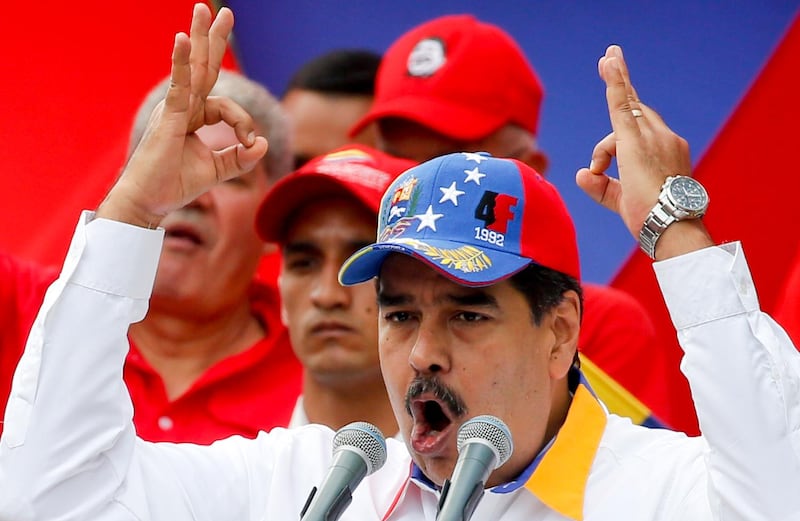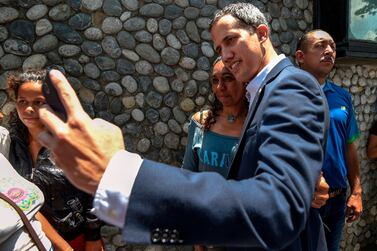US National Security Adviser John Bolton took to Twitter to warn Venezuelan President Nicolas Maduro and his entourage that they were being watched.
"To those who are helping send the Venezuelan people’s wealth out of the country to benefit Maduro and his cronies, you are on notice today that the United States is watching," Mr Bolton said on Saturday.
The tweet follows claims by Mr Maduro that the US had been using frozen Venezuelan funds to bankroll mercenaries to assassinate him in a "plot" he said was directed by opposition leader Juan Guaido.
"We have dismantled a plan organised personally by the diabolical puppet to kill me," President Maduro told thousands of supporters in Caracas.
He alleged that Colombia, Venezuela's US-aligned neighbour, was also involved, and said that an unidentified Colombian paramilitary chief had been captured in the country "and is giving testimony".
Mr Maduro's government gave details of the alleged plot on state television, with Information Minister Jorge Rodriguez saying "hitmen" from El Salvador, Guatemala and Honduras had been recruited "using big sums of money" and sent to Colombia ahead of missions into Venezuela to carry out "targeted assassinations" and "sabotage".
Mr Rodriguez accused Mr Guaido's chief of staff, Roberto Marrero, of receiving money from the US and being a key organiser of the alleged operation.
Mr Marrero, a 49-year-old lawyer, was arrested on Thursday in his Caracas home, triggering an outcry and demands he be immediately released by the US, the European Union and major Latin American countries that recognise Mr Guaido as Venezuela's interim president.
He yelled out to a neighbour, an opposition politician, that the Sebin intelligence officers arresting him had planted two assault rifles and a grenade in his home.
Hours later, Mr Maduro's government showed pictures of weapons it said it found and alleged Mr Marrero was part of a "terrorist cell".
In an interview with Reuters in Peru, the wife of Venezuelan opposition leader Juan Guaido Fabiana Rosales said the arrest of Mr Marrero on terrorism accusations was a "farcical" attempt by Mr Maduro to break the opposition's morale.
"We know what we're up against. We know what kind of monster this dictatorship is," said Ms Rosales, a 26-year-old journalist and opposition activist who is considered Venezuela's first lady by supporters.
Asked if she had a message for Mr Maduro, Ms Rosales said "enough already."
Ms Rosales said spies and pro-government armed groups known as "collectives" – or colectivos in Spanish – have long followed her and her husband, monitoring their movements and stalking their family members and friends. "I and my family members have received threats of being thrown in jail or killed," she said.
"But there's something they've underestimated, and that's that our ideals in this struggle won't be broken. If they thought they can break our morale by arresting Roberto Marrero, or that they could break him, they're very mistaken."







